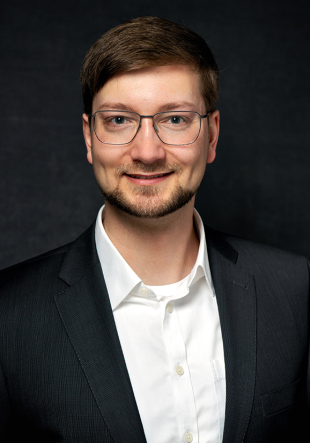Funnel MPC with application in hover control
Duration: 2022 to 2025
Total funding volume: 455,554 euros
University funding volume: 226,260 euros
Funded by: German Research Foundation (DFG)
The aim of the project is to develop, numerically implement and analyse the conceptually new Funnel MPC (FMPC) control methodology. For the first time, it combines adaptive follow-up control, learning and optimisation-based methods in an innovative way. Funnel control and model predictive control (MPC) are both current fields of research in control engineering and mathematical systems theory, both of which bridge the gap between theory and application. FMPC utilises their well-known advantages (compliance with output restrictions and control constraints, inherent robustness, excellent control performance, etc.) to achieve the long-term goal of a universal controller for non-linear systems. FMPC consists of three components:
1.) In a model-based portion of the controller, elements of funnel control are integrated into MPC by incorporating their gain factor into the design of the step costs. On the one hand, this ensures strict compliance with the initial restrictions and ultimately makes it possible to rigorously prove recursive admissibility by means of an argumentation about optimality - without (stabilising) end conditions and independent of the length of the prediction horizon.
2) MPC generally does not guarantee robustness, so one of the main goals is to transfer the robustness inherent in funnel control to FMPC. For this purpose, the control loop is extended by a model-free component by coupling it with a funnel controller with regard to the prediction error of the model-based component. Robustness against model uncertainties is to be rigorously demonstrated for this combination.
3) A second extension of the control loop by a learning component results in a continuous model adaptation and, as a consequence, an improvement of the control quality. For this purpose, unknown model parameters are approximated and the system state is estimated. At the same time, the robustified FMPC guarantees strict compliance with the output restrictions, with the funnel controller providing a sufficiently strong excitation of the system according to numerical tests, which ensures the high information content in the input-output data required for the learning process. In the project, this is to be described mathematically precisely using the concept of "persistency of excitation" and designed in a verifiable manner. A feasibility study is to be carried out using the control of magnetic levitation trains, whereby regular feedback between theory and numerical practice is planned. In levitation control, it must be ensured that a specified distance between the suspension of the vehicle and the carriageway is maintained. Furthermore, robustness against uncertainties (e.g. total mass of the vehicle depending on the utilisation of the passenger area) and disturbances (e.g. wind conditions) is required. At the same time, a high level of control quality is required, including ride comfort, which is exactly what the innovative FMPC concept combines.
Project partner: Prof Dr Karl Worthmann (Ilmenau University of Technology)


